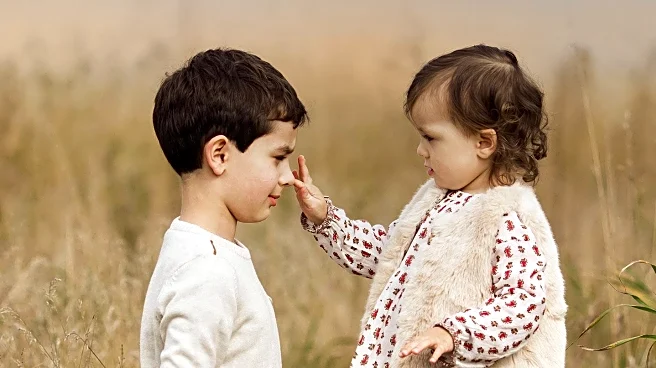What's Happening?
A Kansas mother, Bella Thieme, shared a viral TikTok video capturing her toddler's reaction to the accidental home birth of her baby sister. The video, posted under @bella.thieme, has garnered over 1.2
million views and 257,000 likes. It features a series of images showing Thieme holding her newborn, her husband looking on, and their toddler expressing joy and curiosity. The birth occurred without medical assistance, and the toddler was unexpectedly present. Thieme expressed gratitude for the unplanned experience, noting her toddler's excitement and positive reaction. The video sparked emotional and lighthearted comments from viewers, who praised the authenticity and heartwarming nature of the family moment.
Why It's Important?
The viral video highlights the public's interest in genuine family moments and the positive portrayal of childbirth. It challenges the perception of birth as a traumatic event, showcasing it as empowering and beautiful. Thieme's experience suggests that children can benefit from witnessing such events, potentially fostering a positive attitude towards family and birth. The widespread positive response indicates a societal shift towards appreciating candid and tender family experiences, which could influence how families share personal milestones publicly.
What's Next?
The viral success of Thieme's video may encourage more families to share authentic moments online, potentially leading to increased visibility of positive childbirth experiences. This could contribute to changing societal narratives around birth, emphasizing its empowering aspects. As the video continues to gain traction, it may inspire discussions on the benefits of involving children in family milestones and the impact of such experiences on their development.
Beyond the Headlines
The video’s popularity underscores the role of social media in shaping public perceptions of family and childbirth. It raises questions about privacy and the ethics of sharing intimate family moments online. The positive reception may encourage more open discussions about childbirth, challenging existing stigmas and promoting a more inclusive understanding of family dynamics.










